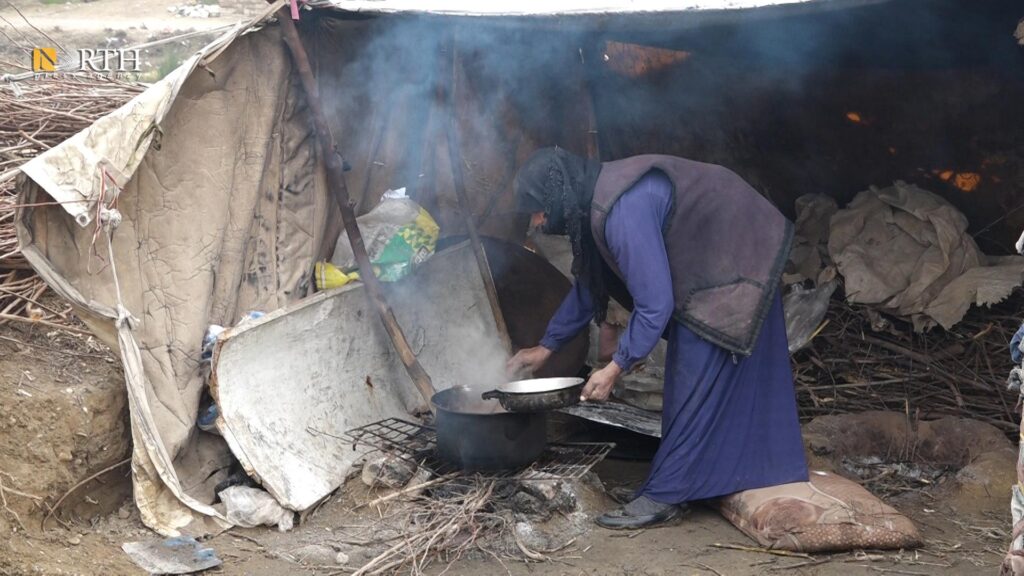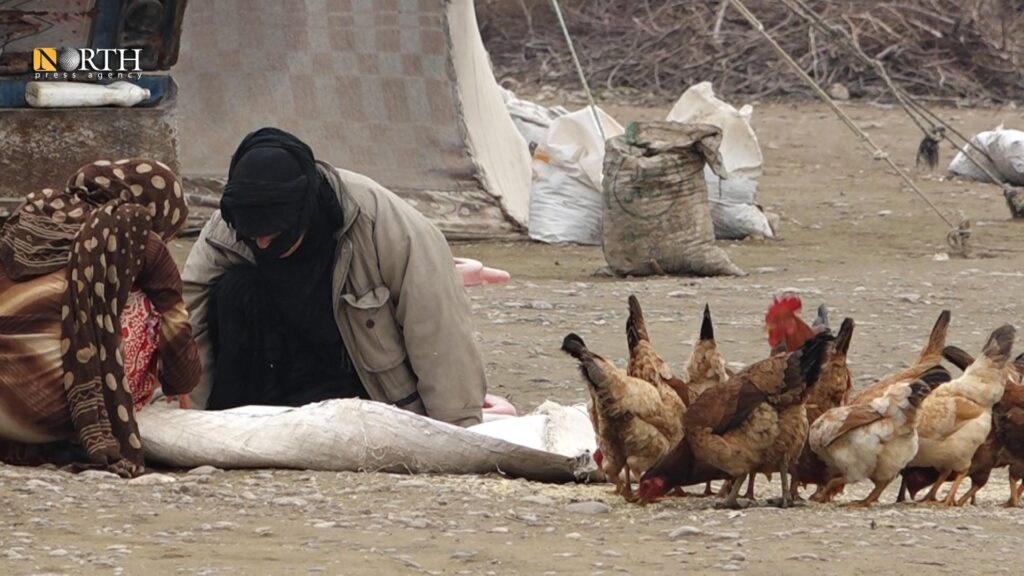RAQQA, Syria (North Press) – Yazi al-Salem, 40, a displaced woman has found a safe place in al-Younani camp for the IDPs in Raqqa Governorate, northern Syria despite the bitterness and hardships of the life in the camp.
However, the woman is worried about a second displacement due to the Turkish threats that have recently been escalated in north and northeast Syria.
On Nov. 20, the Turkish air force launched intense airstrikes on several areas of north and northeast Syria on the Syrian-Turkish border in addition to bombarding areas that are more than 40 km away from the border such as the Global Coalition military base and Hawl Camp in Hasakah and the village of Makman in the northern countryside of Deir ez-Zor.
Al-Salem, and most of the IDPs of al-Younani camp, hail from the city of Resafa in the countryside of Raqqa which is under the control of the Syrian government. They fled due to the government forces’ harassment and the activities of the sleeper cells of the Islamic State Organization, as the city is located in the Syrian Desert where ISIS is active.

Based on the above, al-Salem decided not to go back to her city. Despite the harsh conditions, the woman prefers the life in the camp to new displacement. She fled in search of safety, as she noted.
She said she fled the horrors of war and did not know what would happen if another war was broken out.
Al-Younani makeshift camp shelters nearly 270 displaced families all coming from areas under the control of the Syrian government forces in the southern countryside of Raqqa and the countryside of Homs and Hama.
There are 58 makeshift camps in the countryside of Raqqa that shelter more than 90.000 IDPs, numbering 16.165 families, according to data of Camps and IDPs Affairs Bureau of the Raqqa Civil Council of the Autonomous Administration of North and East Syria (AANES).
The AANES was first formed in 2014 in the Kurdish-majority regions of Afrin, Kobani and Jazira in northern Syria following the withdrawal of the government forces. Later, it was expanded to Manbij, Tabqa, Raqqa, Hasakah and Deir ez-Zor after the SDF defeated ISIS militarily there.
The IDPs of the makeshift camps in Raqqa face harsh humanitarian situations due to harsh winter, lack of supplies, and the possibility of the spread of infections including cholera, flu, and others.
The AANES had previously said the IDPs living in makeshift camps in Raqqa are “without support and undergo difficult living conditions after the withdrawal of a number of humanitarian organizations.”
Al-Salem pointed out that the camp lacks the necessities of life. She also expressed concern for her children, who have thalassemia and are unable to face the cruel conditions of displacement.
The 62-year-old Yazi Hassan shared the same anxieties of al-Salem about where the path would take them if they were forced to flee.
“We were barely able to survive,” Hassan said.
She left everything behind five years ago and sought safety. She, along with her family, were ready to live in a primitive tent that she sewed from worn-out cloths that does not protect them from the harsh weather conditions.

The misery of the displaced in the camps begins with the advent of winter, as they are forced to rely on firewood due to the lack of tents and heating fuel.
She added, “We have nothing left but this tent to protect us. Where are we going now? We have only the mercy of God.”
Like her predecessors, Khatoun al-Issa, who is responsible for a family of 11, is concerned about a new displacement in light of the bad conditions in the camp.
Like other IDPs in the camp, al-Issa does not want to experience a new scenario of displacement and war that caused them to lose their livelihoods, as they said.
“We are only working to secure a living; the situation for the majority of Syrians is so awful, but what will happen if we are displaced once more? There is nowhere for us to go,” she concluded.

